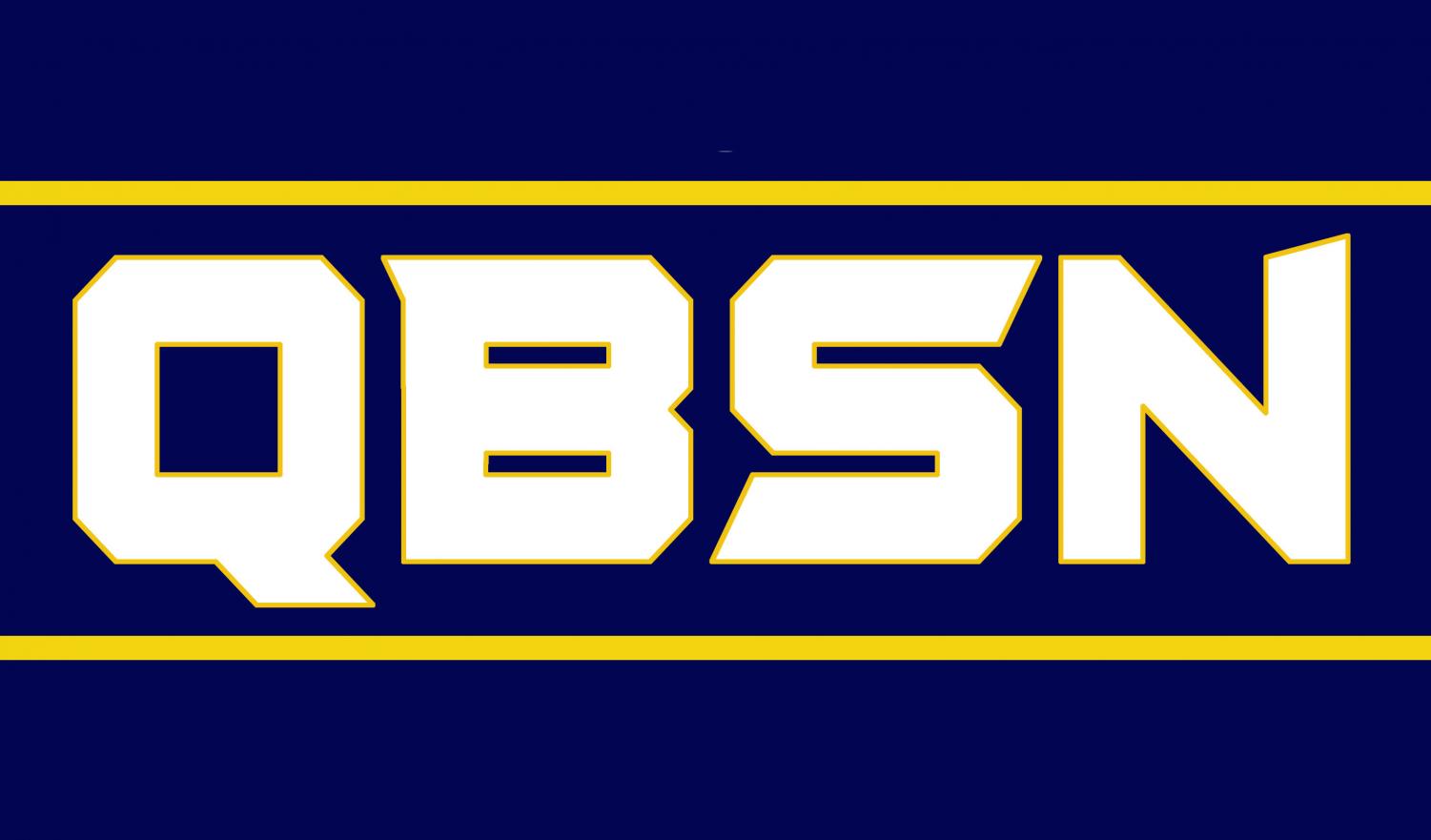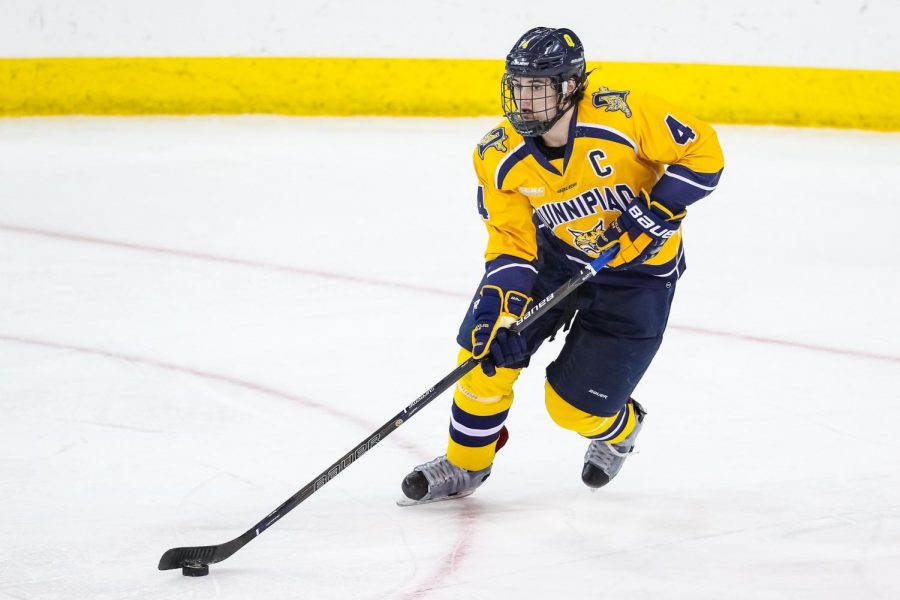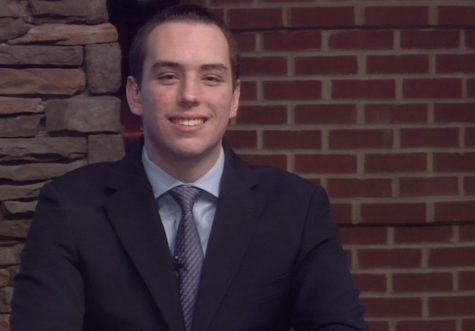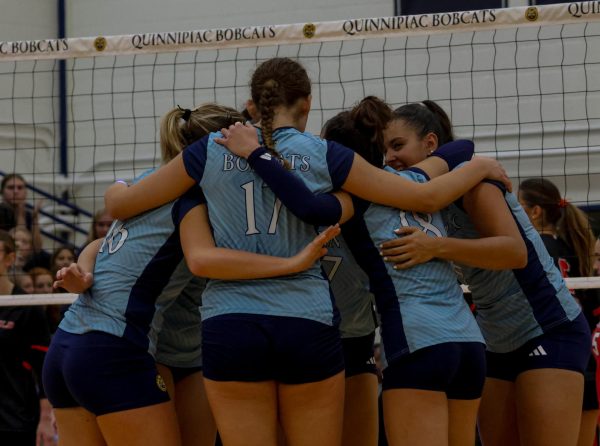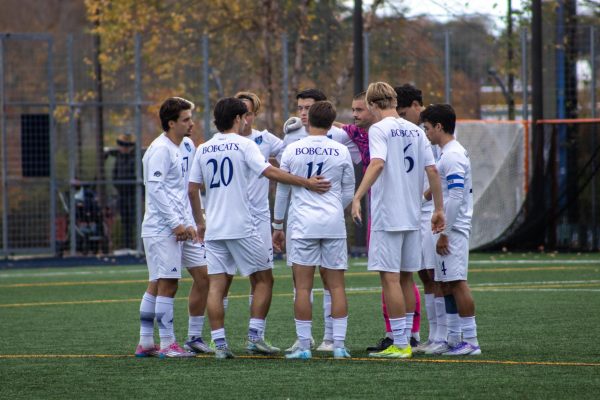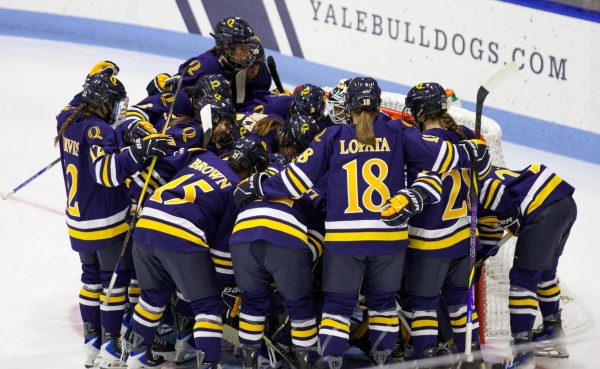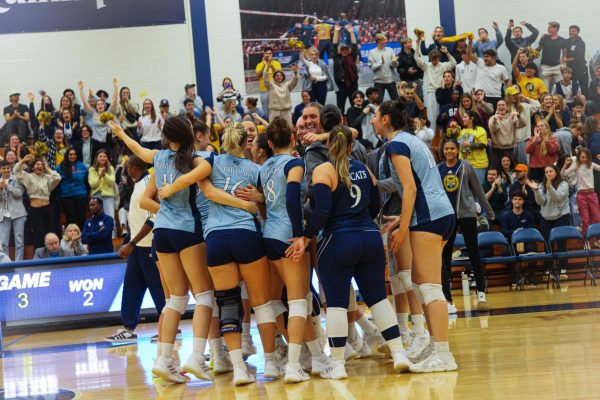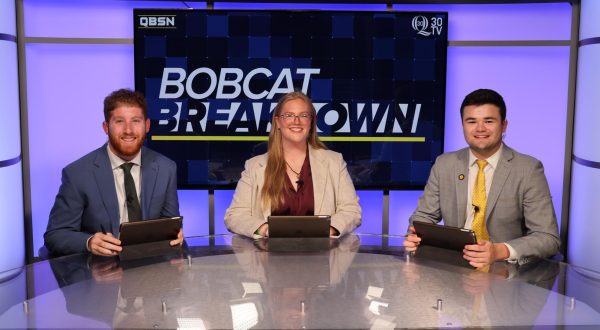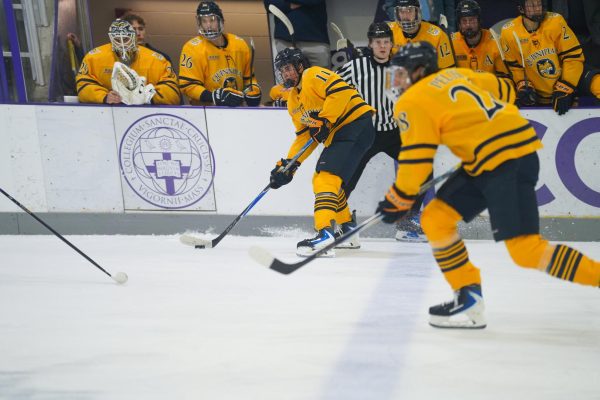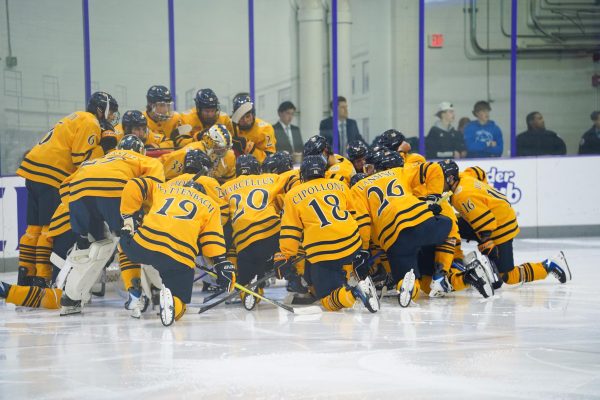A Talk with “Cliffy Hockey”
November 1, 2019
When the Boston Bruins made the Stanley Cup Finals this past season, a familiar face to the Hamden community took centerstage. Quinnipiac University alum Connor Clifton, a defenseman on the Men’s Ice Hockey team from 2013-2017 and former captain, became the first Bobcat to play in the Stanley Cup Playoffs, as well as the first Bobcat to score in the Finals. After the season, Clifton signed a three-year contract extension to stay with Boston.
Clifton took a few minutes out of his day at Bruins training camp to talk with QBSN about his time at Quinnipiac, his incredible postseason run, and what the future has in store.
(This interview has been edited for clarity and length)
Tom Krosnowski: “What do you remember about your first call-up to the NHL?”
Connor Clifton: “I ended up finding out at like, 11 p.m. Had an Uber pick me up around 8 a.m. to the Boston airport, and hopped on a flight. Met the team mid-trip – I think they were two or three days into the trip – they had a couple injuries in Colorado two days before the Dallas game. And we flew out there, had a nice dinner with Noel Acciari, and didn’t even know if I was playing or not. There was a questionable player, I think it was John Moore, who may or may not play the next day, so I wasn’t sure if I was even playing when I got to Dallas. Then I woke up in the morning, and I kind of forgot what my number was. Then “75” was on the [lineup] board next to [Matt Grzelcyk] and I was like, ‘Am I number 75?’ and he was like, ‘Yeah, that’s you!’ and I knew I was playing then. Then I went back and took a nap and I ended up playing!”
TK: “After a little bit you were sent down, but then you were up for good after the second call-up. What happened in the middle there? Did you make any adjustments to your game? What was the difference for you to stick around there for the second time into the playoffs?”
CC: “Honestly, I think just an opportunity presented itself. When I ended up getting sent down early December when [Charlie] McAvoy came back from injury, and I went back down to Providence, I continued to work on my game and become a more consistent player. Then, an opportunity presented itself with a couple more injuries in March there, and I ended up getting another call and fortunately, I was part of the great playoff run.”
TK: “I think everybody who has heard about Connor Clifton knows about the phrase ‘Cliffy Hockey.’ Can you describe it? What is ‘Cliffy Hockey?’”
CC: “Honestly, I have no idea! But people tend to like it. I guess I play right on the line, right on the edge, I try to be an aggressive player, and honestly, I don’t know too much about that. Other guys can answer that a little better than me, I don’t know where it came from. But it seems like it’s stuck.”
TK: “It has! Where would you say that ‘edge’ came from, why you play ‘on the line’ a little bit? Was it always a part of your game, or maybe from a favorite player, where did that come from?”
CC: “I think it was just always part of me, yeah. I always like to be involved – I like to make plays, whether that’s a hit, a pass, a goal. I think it’s just always been that way.”
TK: “You are the first Quinnipiac alum to play in the Stanley Cup Playoffs, and of course in the Finals. That means Quinnipiac got mentioned a lot over the course of the playoffs. What does that mean to you, bringing some more notoriety to the program?”
CC: “It’s pretty cool. I think it’s just the beginning – there’s been a lot of great players that have been through the program and continue to come through the program. I think it’s kind of just the beginning. But it’s definitely a special feeling. I remember when Devon [Toews] and I lined up against each other in the regular season, it was the first time that two Bobcats met up in the NHL and that was a pretty cool feeling too, but just to think, you get your first goal in the Stanley Cup Final, that’s just a whole different level, and pretty special.”
TK: “Absolutely. It looks like there’s going to be a few more Quinnipiac grads in the NHL soon, including Chase Priskie. How is he going to adjust to life in the NHL, hopefully soon?”
CC: “I don’t think it will be that big of an adjustment for him. I think he’s a special player, an elite skater. His skill set is just, it’s something you can’t really teach. I talk to Chase a lot and I think my adjustment period to pro hockey took a lot more time, and rounding out my game, figuring out how to play [in the pros]. It will [have been] a lot tougher for me than it will be for him.”
TK: “What was it like playing in the Frozen Four? I know the Stanley Cup Final is the big story now, but the Frozen Four, would you say that helped prepare you in any way for the pressure of the playoffs?”
CC: “Yeah, any type of playoff hockey is pretty similar. I mean, that was a special year for us in 2016 – I think we lost four games all year. That was quite the team. Obviously, a single-elimination game is a lot tougher than a series, so a tournament is a little different. But it’s still playoff hockey, and you do everything that you can to help your team win. I guess that was the first deep run that I had in my life, playing into April, and this year was June, which is pretty crazy. But yeah, every level you get to, you try to be the best you can and you try to learn a lot, and you take whatever you can out of it, and I think I did that. Obviously, the Stanley Cup Final is a whole different level, but you can relate it.”
TK: “What was your favorite memory at Quinnipiac? It could be on the ice, it could be something in the locker room, but what’s your favorite memory from your time here?”
CC: “Oh, wow, reminiscing! Let’s see, I think it was that Whitelaw Cup, when it was our third year in a row making it to [the ECAC Hockey Championships at] Lake Placid. We lost the first game my freshman year in double overtime, and then we lose again sophomore year in the semifinal, and then we finally pulled through and get Quinnipiac’s first-ever Whitelaw Cup. That was something special, I’ll put that up there with beating Boston College in the semifinal of the Frozen Four that same year. Two pretty awesome games, and something that I’ll remember forever.”
TK: “What would you say is the biggest difference or adjustment that you’ve had to make from college hockey into the minors and now to the majors?”
CC: “Probably consistency. Everyone’s just so professional. There are no nights off. If you have a game, you’re never going to catch a tired opponent. You’ve got the best players in the world coming at you shift in and shift out, so you’ve kind of got to play your best, or you’re going to hurt your team.”
TK: “What would you say was your ‘Welcome to the NHL’ moment?”
CC: “I think the first shift. There’s a lot of anticipation leading up to that NHL debut in Dallas. But, when it’s all said and done, you line up at 7 p.m. for puck drop and then, you’re playing hockey, and I’ve been playing hockey forever. You’ve been waiting for that moment for so long, and you’re so excited for your first shift, you think you’re going 100 miles an hour, and then you get back to the bench, you’re a little tired and then just, ‘Wow, I just had the first shift!’ and then you just settle down and play.”
TK: “Now, with your recent contract extension, it looks like you’ll be in Boston for at least the next couple of years, hopefully for a long time. What are you most excited about this with year’s team?”
CC: “I think I’m most excited about the guys. We’ve got a lot of returning guys, we’ve got a great core veteran group. The up-and-coming guys are really good. So, it’s just the group. I mean, obviously, you make it all the way to the Stanley Cup Final, Game Seven, it’s a tremendous season, but a really disappointing loss and we’re ready to give it another go with this group.”
TK: “Would you say that getting all the way to Game Seven and losing the way you did, after similarly losing in the [NCAA] National Championship, would you say that sort of thing can drive you and help you guys take that next step forward?”
CC: “Yeah, it obviously sucks. The feeling of defeat is hard to get rid of it. But you can use it as fuel and you can think about it in your workouts over the summer and it makes you work just that much harder, and we know our plan is to get back to that same spot just with a different outcome, so we’re looking forward to it this year.”
TK: “You mentioned that you still talk with Chase, who just graduated. Do you still keep in contact with anyone else on the team?”
CC: “Pretty much everyone. I talked to Devon [Toews] yesterday, and Sammy [Anas] last week, we went golfing. Really, our whole class. Had a couple weddings this summer. I remember [Brogan] Rafferty, when he made it last year, he gave me a call and he was a little nervous, but I tried to help him, told him to relax. He wanted some advice and I was like, ‘Dude, just play your game, and stop thinking so much.’”
TK: “Before we wrap up here, are there any final thoughts that you’d like to say about your time at Quinnipiac?”
CC: “It might be cliché, but they say these are the best four years of your life, and it was. The guys, and the experiences we had together are something I won’t ever forget. I don’t regret anything about my four years at Quinnipiac. They helped shape who I am as a guy and as a hockey player today.”


